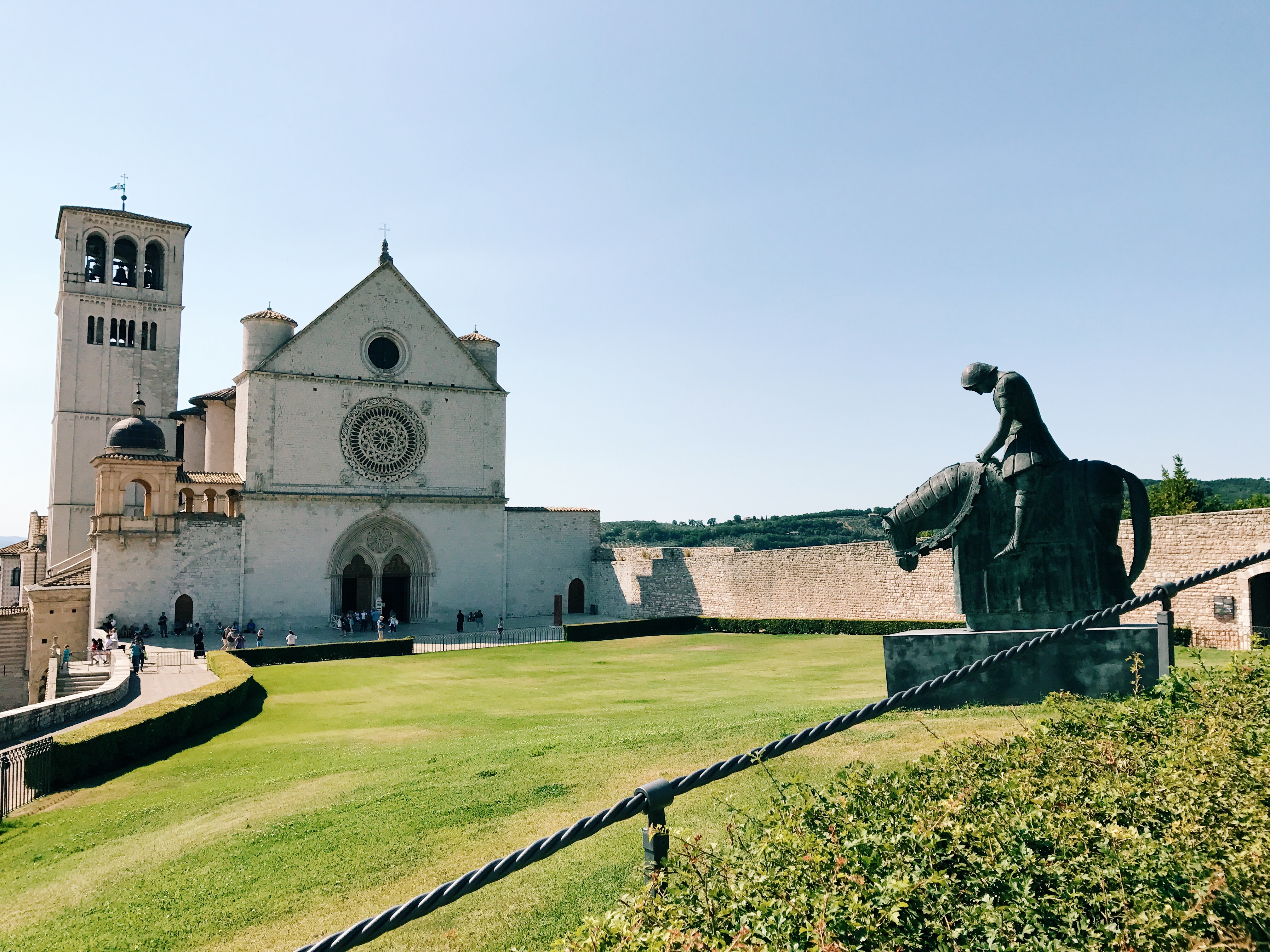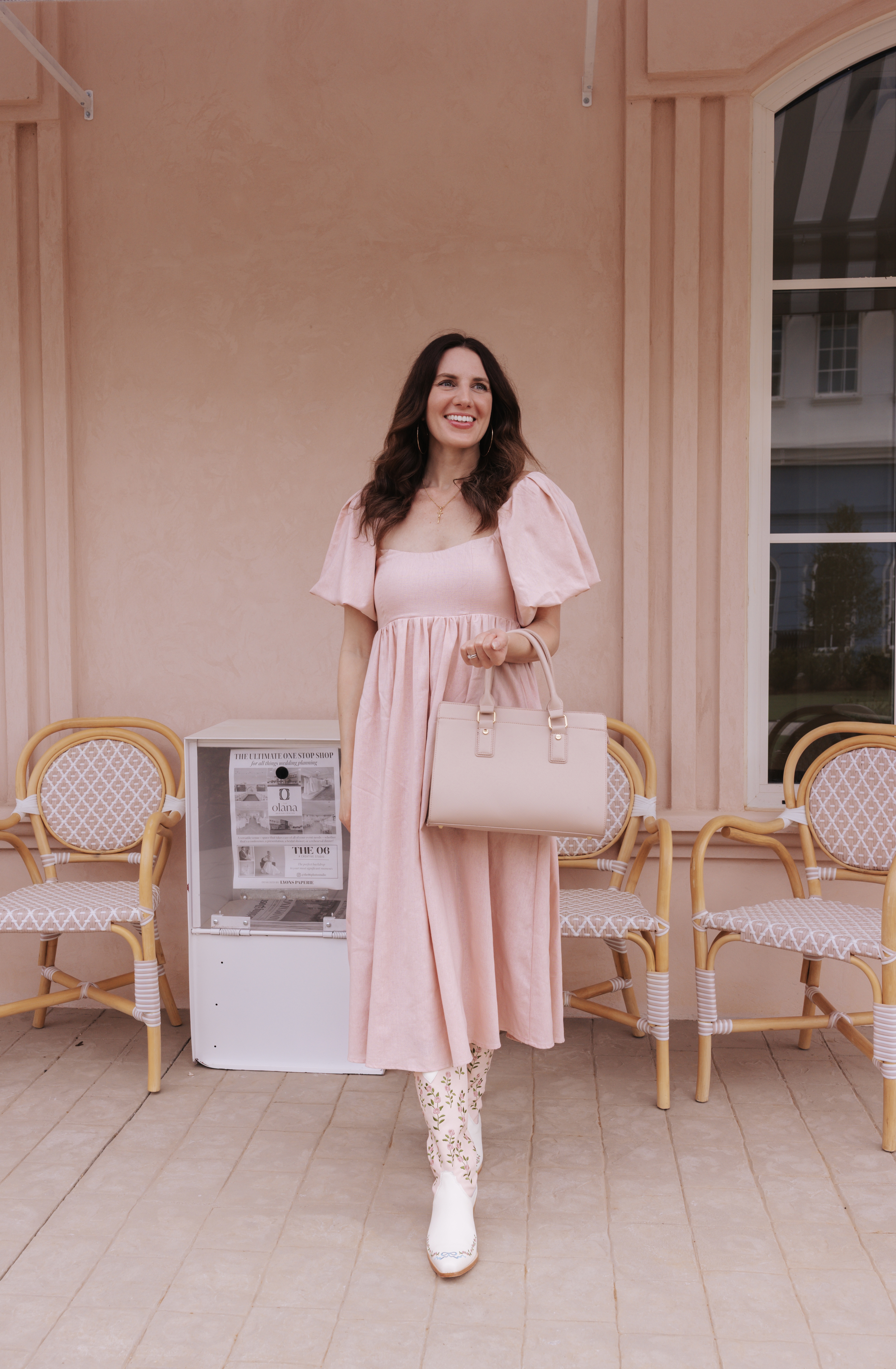Saints and the Simple Life
Claire and I have both felt a calling to a simpler life. This first started after we traveled to Assisi, but we didn’t have a chance to talk about our experiences together until a week after our trip. It was then that we realized the similarities in those things that God had pressed upon our hearts.
While I was growing up and learning about the faith, the idea of a saint intrigued me. The man that embodied sainthood to me in those early years was St. Francis. When I heard talk of “the saints,” I always thought of men and women like St. Francis in brown robes. But he quickly took a backseat as I learned about St. Michael the Archangel, whose heavenly power appealed to my younger self. I knew of Francis’ basic story in casting off the world to help the poor and live a humble life, but these lessons didn’t fully hit home until our trip.
Lessons from Assisi
Walking the streets of Assisi, the very places that St. Francis walked, and learning more about his life started a movement in my heart. His radical way of life (radical to the secular world) was brought vividly before my eyes, and for the first time I realized how beautiful his calling was. And how it just made sense. I always thought that St. Francis was called to be St. Francis and that I was called to be Mike, which meant that I could have worldly possessions and still serve God and I didn’t have to be so lowly as to sell everything I owned.
While I know that I am called to be Mike and not St. Francis, it was clear that God wanted me to give up my pursuit of worldly possessions and the accumulation of material things. I felt the desire to sell off all of the excess in my life. And a radical change overtook my thinking and my whole being. I didn’t need this music album. I didn’t need to see that movie. I didn’t need to own this pair of headphones or that electronic “thing.” It was time to simplify. I recalled a quote by Mother Teresa that now passes through my thoughts many times a day – “Live simply so that others may simply live.”
When we started to talk about our trip, it was clear that Claire was feeling the same things about our material goods. So we devised a plan to take a hard look at our belongings, and think about what we truly use, and what we can leave behind. It’s a humbling experience to go through the things you own and find out just how little we need to live. As we finish our move, we will begin to sell and donate those items that we no longer need, or never needed in the first place. Once again God is showing us what true freedom looks like – to be free from material things and not to be slave to the buy mentality.
The True Cost
As our plans were growing, Claire was reading a blog and found this documentary on Netflix called The True Cost. We watched it last week. It’s an understatement to say that this documentary floored us. We are being shaken to the very core of our beliefs about our world, our society, and about our material goods. I had a small idea that perhaps Assisi was going to be a passing notion and we would fall into our old habits. The kind of thinking that this was just being “on fire” after a pilgrimage and everything would return to “normal.” But watching this documentary, watching the poor fighting for their lives as they support our excessive materialistic society, our buy mentality that values little if nothing at all, only cemented the foundation God had laid down in Assisi.
A Call to Action
It’s time for a fundamental change in how we live. I started questioning everything we own, and everything that I wanted. Was it good? Was I honoring those who made it? Was this made in fair working conditions? Do I need this to live? Clearly the answer to the last question for many of our possessions is a resounding “No.” So it is time for us to simplify, to stop the cycle of accumulating goods, and to get rid of the excess. For those items that we do use on a regular basis, we have a renewed sense of respect not only for the item but for those who made it. We have a renewed sense of taking care of those items as they were made by people who are fighting to live, just to make ends meet. It is time for a fundamental change in how we live.
Recently I came across this passage from the Catechism of the Catholic Church:
” ‘In his use of things man should regard the external goods he legitimately owns not merely as exclusive to himself but common to others also, in the sense that they can benefit others as well as himself.’ The ownership of property makes its holder a steward of Providence, with the task of making it fruitful and communicating its benefits to others, first of all his family. Goods of production – material or immaterial – such as land, factories, practical or artistic skills, oblige their possessors to employ them in ways that will benefit the greatest number. Those who hold goods for use and consumption should use them with moderation, reserving the better part for guests, for the sick and the poor.”
There’s a lot to unpack from this quote, but the three things that stand out the most to me are:
- We are stewards of Providence. A steward is someone who is appointed to look after another’s property. Everything we have, whether it be our talents or our possessions, has been given to us by God. They are ultimately His. I know when I am lent something that I take extra care to keep it in pristine condition. We need to extend this mentality to our own possessions.
- Goods should be used in a way that will benefit the greatest number. This includes using factories that are safe. This includes using land in a way that does not harm our environment, or the farmers that farm that land. This also raises the obligation for us to use our skills to benefit the most amount of people.
- We need to use and consume our goods in moderation. Our society needs to relearn moderation. But we also need to go a step further. We need to save the best parts of our goods and consumables for our guests, for the sick, and for the poor.
Please join us in our journey to live a more humble, simpler life. Please join us as we fight in every way we can for the basic human rights of all – including those that make a vast majority of our goods. Please watch The True Cost. Please pray with us.
-M
Listen to the latest
Tune into the Finding Philothea Podcast where my husband, Mike, and I share the mercy, beauty, and joy of a life lived for Christ.


